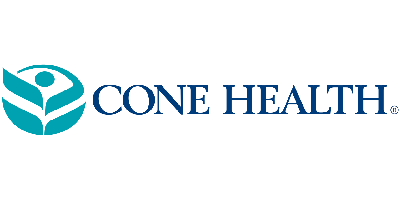|
| The Executive Director Enterprise Reporting and Analytics leads the development, implementation, and operations of a comprehensive reporting and analytics strategy with a strong emphasis on supporting value-based care. This role is responsible for overseeing clinical, operational, financial, health economics, and claims reporting and analytics to drive actionable insights that improve patient outcomes, operational efficiencies, and financial performance. This role will lead a team to provide data-driven recommendations that align with organizational goals and enhance decision-making across the organization. Reporting and analytics services will include a combination of standard and self-service tools, ad hoc analysis, and support for the development of data applications that drive care model operations. This role and team will need to bring expert knowledge in claims and claims analytics, clinical quality and quality metrics, clinical coding, care team operations and initiatives. This role demands the ability to skillfully drive disruptive innovation, while effectively collaborating with internal teams including clinical, operational, and technical partners while also managing external partnerships and outsourced relationships to ensure alignment with organizational goals and industry standards. Collaborating closely with clinical, financial, and operational leaders, this role will ensure analytics and reporting capabilities support performance measurement, strategic planning, and the success of value-based contracts. |
|
1. Strategic Leadership and Oversight:
Develop and implement a comprehensive reporting and performance analysis strategy that supports value-based care initiatives and population health management.
Ensure alignment of data strategies with the organization?s goals for quality improvement, cost containment, and patient satisfaction.
Serve as a key advisor to executive and senior leadership, providing actionable insights for decision-making and performance
improvement. 2. Reporting and Analytics Capabilities:
Oversee the creation of data applications, dashboards, reports, and tools to track clinical, financial, and operational metrics,
ensuring accuracy and relevance.
Monitor key performance indicators (KPIs) and trends related to value-based care agreements, including shared savings, quality
scores, and risk adjustment.
Collaborate with internal and external stakeholders (with a focus on payor partners) around reporting and analytics including data
quality and meanings
Facilitate reporting compliance with regulatory, payor, and accreditation requirements. 3. Performance Analysis and Improvement:
Analyze system performance in value-based arrangements, identifying gaps and opportunities for improvement.
Collaborate with clinical, operational, and financial teams to design interventions that enhance patient outcomes and reduce costs.
Provide predictive and prescriptive analytics to inform care management, resource allocation, and care model strategy.
Participate in and bring data to inform care model design and workflows. 4. Leadership and Team Development:
Lead, mentor, and develop a team of health economists, clinical analysts, and performance specialists.
Foster a culture of innovation, accountability, and continuous improvement within the team.
Ensure the professional growth and technical expertise of the team through training and development opportunities. 5. Stakeholder Engagement:
Collaborate with clinical and administrative leaders to ensure analytics needs are met and reporting supports decision-making
across the organization.
Partner with clinical leaders, particularly care management and population health teams to ensure population health management
platform workflows and data align with and support the care model. Drive innovation in the care model through data-informed
decision-making.
Partner with clinical, operational and financial leaders to prioritize reporting and analytics requests and ensure alignment with the
organization?s business priorities
Partner with information technology (IT) in the day-to-day operations of data management infrastructure and needs
Partner with information security, and compliance and privacy teams with regard to the handling of data and to ensure the safe
handling and use of protected health information (PHI) and personally identifiable information (PII), especially as it relates to data
access across the clinically integrated network and external partners.
Present findings and recommendations to executive leadership, board members, and other stakeholders in a clear and actionable
format. 6. Technology and Systems Management:
Participate in the selection, implementation, and optimization of data analytics platforms, tools, and systems.
Ensure data governance policies and processes are followed, maintaining high standards for data accuracy, security, and
compliance.
Remain current on emerging analytics technologies and methodologies to enhance the organization?s capabilities. |
| EDUCATION: |
| Required: Master's degree in economics, computational sciences (physics, chemistry, biology, or related), engineering, public health, or a related field (required); clinical degree (e.g., MD, RN) with informatics experience or actuarial experience (a benefit). |
| EXPERIENCE: |
Required:
Minimum of 8-10 years of progressive experience in healthcare analytics, reporting, and performance management, preferably in value-based care or population health.
Demonstrated expertise in population health and/or care management platforms (such as Epic?s Value-Based Care tools, Innovaccer, Arcadia, Lightbeam or other)
Demonstrated expertise in claims and utilization analytics and use of claims analytics tools (such as Milliman MedInsight)
Demonstrated expertise in clinical quality reporting and measures including knowledge of HEDIS, NQF, CMS quality metrics
Proficiency in modern data management platforms (such as Databricks or Snowflake), data visualization tools (Power BI, Tableau, Sigma Computing, or Qlik), and analytics languages (SQL, Python, R).
Experience working within an agile delivery environment and knowledge in the operational aspects of analytics operations (DevOps approach)
Strong understanding of healthcare reimbursement models, including value-based payment mechanisms, value-based contracting (governmental and commercial), and bundled payments
Understanding of clinical workflows, clinical operations, healthcare reimbursement models, including value-based payment systems, ACOs, and bundled payments (preferred).
Exceptional leadership, communication, and collaboration skills, with the ability to influence across all levels of an organization.
Proven track record of driving organizational change and performance improvement through data-driven strategies. |
| LICENSURE/CERTIFICATION/REGISTRY/LISTING: |
|
Equal Opportunity Employer At Cone Health, we strive to create a welcoming atmosphere that celebrates a diverse and unique workforce. We believe in offering equal opportunities for employment to all applicants and employees, regardless of their race, religion, age, sex, sexual orientation, gender identity, veteran's status, ethnicity, national origin, disability, color, or any other characteristic protected by law. Our hiring and employment choices are based on each individual's qualifications, skills and performance. We believe that by embracing the diversity of our team, we can better serve our patients, communities and each other.
|
 Cone Health
Cone Health
 Feb 06, 2025
Feb 06, 2025 
